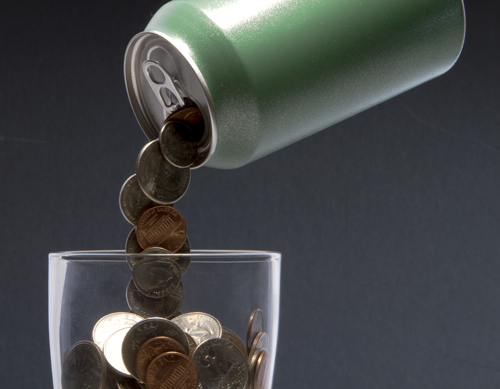The Portland citizens group Yes for a Stronger Multnomah County is working to instigate a sugar tax that would place a one-cent-per-ounce tax on all sugar-added beverages including soda, energy drinks and some juices. According to the group, the purpose of the sugar tax is to improve children’s health and create jobs.
Multnomah residents discuss sugar and cents

The Portland citizens group Yes for a Stronger Multnomah County is working to instigate a sugar tax that would place a one-cent-per-ounce tax on all sugar-added beverages including soda, energy drinks and some juices. According to the group, the purpose of the sugar tax is to improve children’s health and create jobs.
“The major goals are to get people working and get kids exercising,” said Dr. Gregg Coodley, one of the initiative’s proposers who is a Portland doctor and member of Yes for a Stronger Multnomah County.
According to Coodley, the tax would bring in an estimated $35 million annually and create 4,000 jobs. Additionally, the benefit of the tax would be twofold: half of the money would go to businesses, in the form of a subsidy, to hire people; the other half would be used to fund school physical education, summer and outdoor programs, Coodley said.
The initiative would have a minimal negative economic impact by creating jobs and taxing something that is over-consumed by children, Coodley said. “Sugared beverages are the number one source of calories in children—they dwarf everything else in terms of their effects,” he added.
Belinda Zeidler, professor of health and nutrition at Portland State, said in an email interview, “Recent research suggests that the chronic consumption of sugar and high fructose corn syrup is linked to a variety of health issues from increased obesity, increased risk for diabetes, increased risk of heart disease, to increased blood pressure as well as promoting overeating as fructose does not stimulate the normal body mechanisms that help control hunger and appetite.”
The 2010 U.S. Department of Agriculture dietary guidelines recommend substituting water or fat free milk for soda, energy drinks and sugar-added juices.
“Sugary beverages provide no additional nutrients such as vitamins, minerals and fiber and are considered empty calories,” Zeidler said. “There is nothing to be gained by drinking such products, and the damage is tremendous. By taxing soda, we can try to prevent or discourage people from buying soda, just as we have done with cigarettes.”
Though Zeidler supports the tax, she cautioned that a penny-per-ounce increase would likely have an insignificant impact on consumption. Moreover, similar sugar taxes in other states have not shown reduced rates of obesity and obesity-related diseases.
Rex Burkholder, metro councilor of District 5 and PSU alumnus, endorsed the proposal and is working with its sponsors to include funding in the initiative for outdoor school.
“I think it is very critical that we educate our children holistically and give them the tools to understand and act during an era of rapid and major change,” Burkholder wrote in an email. “But, because we have extremely limited funds for education and narrowly focused requirements, critical learning skills gained through activities such as physical education and nature/conservation education have been cut.
“The modest tax proposed in the measure would achieve a lot of good in our community, and I believe that voters will support it,” he added.
Some people are still on the fence.
Science major Tiffany Enos said she would probably support the tax depending on the final wording of the initiative but that the tax sounds like only a temporary solution.
Marsha, the manager of Greenline Market, a convenience store on campus, said that while she cannot speak on behalf of the Greenline Market, she personally supports where the money generated from the tax would go, but she thinks that the one-cent-per-ounce tax is too high. “I would support it if it were lower,” she said.
Coodley said sugar-free drinks, 100-percent juice and diet soda would be exempt from the tax.
Yes for a Stronger Multnomah County is in the process of getting feedback and improving the proposal. In the near future, it will begin attempts to collect the nearly 17,000 signatures needed to get the initiative on the November 2012 ballot. Coodley feels “absolutely confident” that they will obtain the required signatures.




